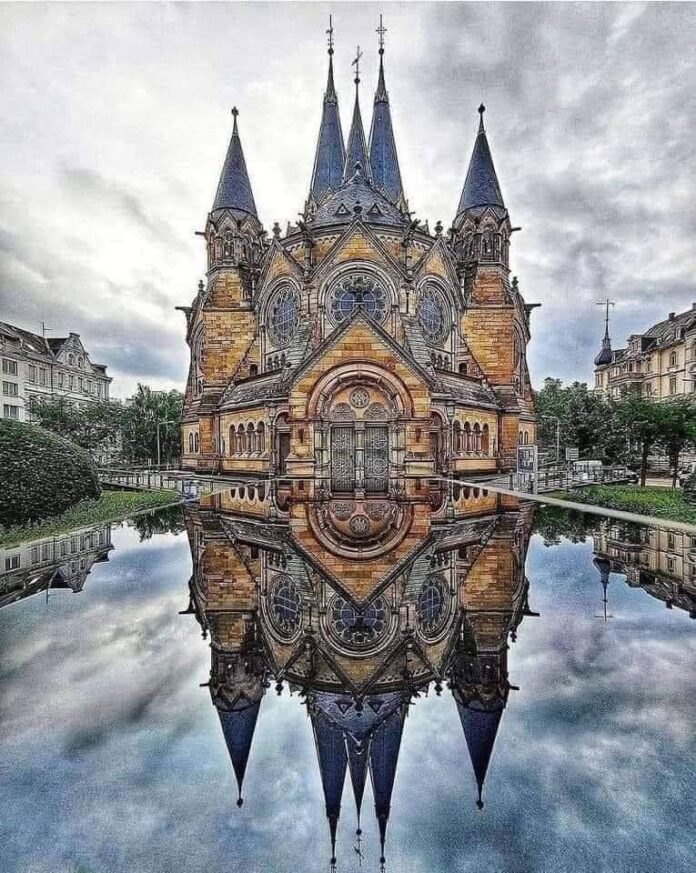The Ringkirche, or Ring Church, is a stunning Romanesque Revival masterpiece that has become a defining landmark in Wiesbaden, Germany. Nestled at the intersection of the Westend and Rheingauviertel districts, this architectural gem was constructed between 1892 and 1894 under the direction of Johannes Otzen, a renowned architect from Schleswig-Holstein. More than just a place of worship, the Ringkirche serves as a significant cultural venue and a symbol of Protestant heritage in Germany.
The Birth of a Landmark: Germany’s First Protestant Church Designed According to the Wiesbadener Programm
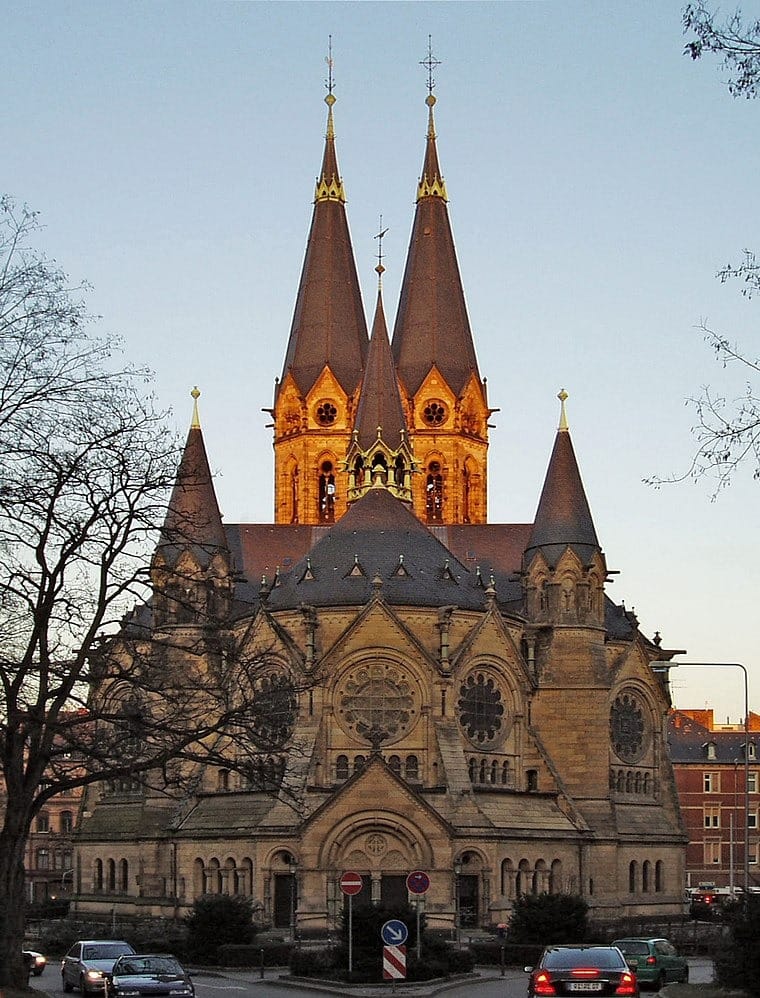
The Ringkirche holds the distinction of being the first Protestant church in Germany designed according to the Wiesbadener Programm. This architectural approach was groundbreaking at the time, ensuring that every congregant, no matter their seat, had an unobstructed view of the altar, pulpit, organ, and choir. Johannes Otzen, one of the key figures behind the Wiesbadener Programm, crafted the Ringkirche’s design to set a standard for Protestant churches across Germany, influencing many that were built until the end of World War I. The church was consecrated on October 31, 1894, just in time for Reformation Day, with a seating capacity of 1,100 that showcases a harmonious blend of Romanesque and Gothic styles. The church’s twin towers, soaring 65 meters high, are a prominent feature of the Wiesbaden skyline.
A German National Monument: Preserving Historical Integrity
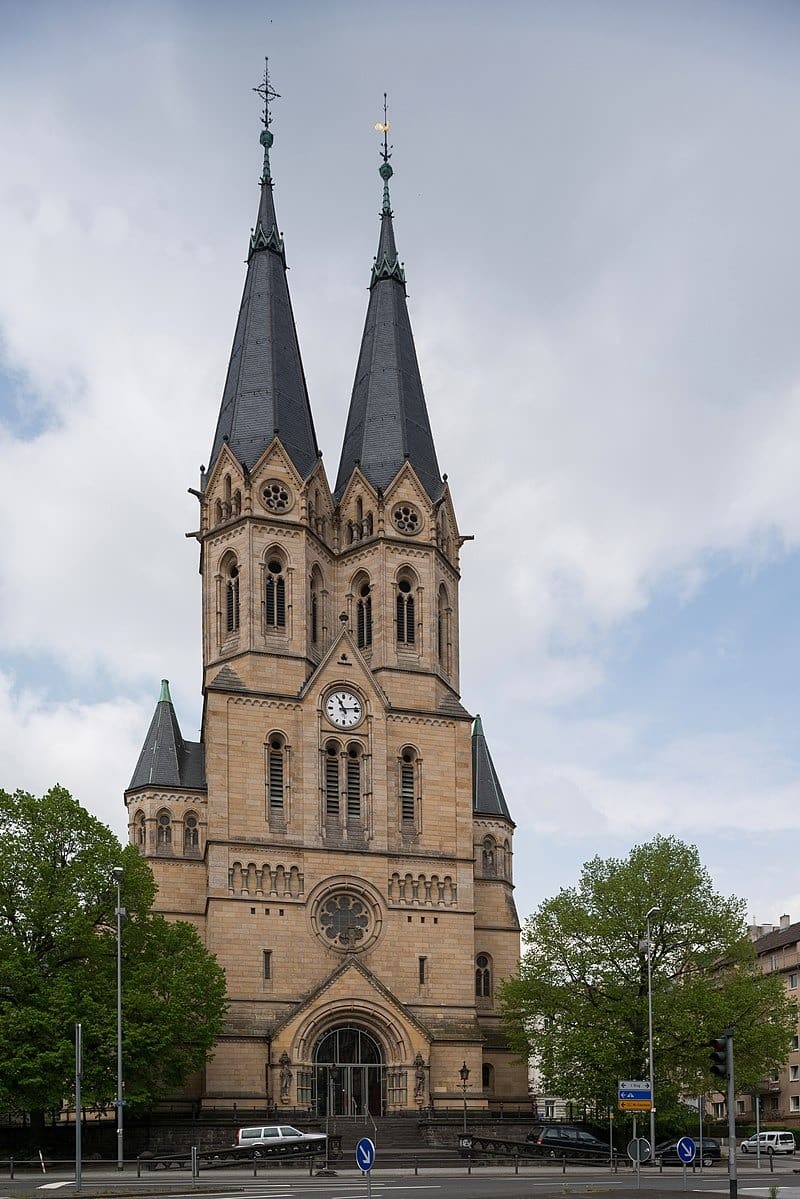
Located on Ringstraße at the end of Rheinstraße, the Ringkirche was declared a German Nationaldenkmal (national monument) in 2002, recognizing its historical and cultural significance. Remarkably, the church has remained unscathed by the ravages of war or later architectural alterations, preserving its original design for over a century. To maintain its historical integrity, restoration work commenced in 2003, focusing on faithfully preserving the church’s exterior, interior design, and structural elements. This dedication to conservation ensures that the Ringkirche continues to stand as a testament to its original architectural vision.
A Stunning Interior: Harmony in Design
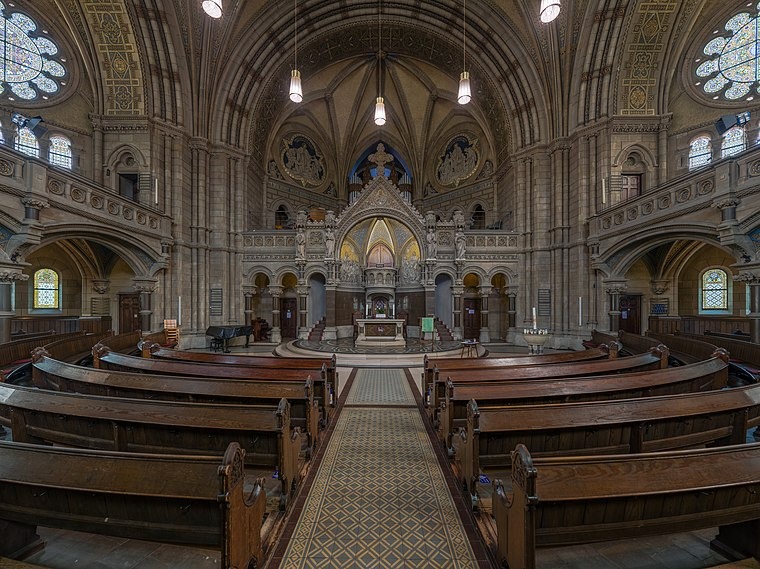
The interior of the Ringkirche is as impressive as its exterior, featuring a central sanctuary where the altar, organ, pulpit, and choir platform are all integrated into one cohesive area. The pews are arranged in a circular fashion around the altar, allowing every attendee to see and hear clearly, embodying the principles of the Wiesbadener Programm. The church is also adorned with beautiful colored glass rosettes that cast vibrant patterns of light throughout the sanctuary when the sun shines through, creating a breathtaking visual effect.
The Romantic Style Organ: A Musical Masterpiece
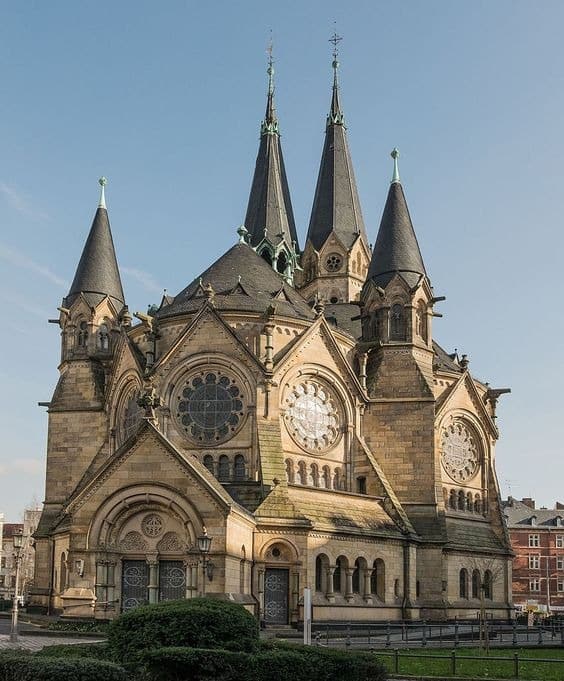
One of the church’s most remarkable features is its organ, originally built by Walcker in a Romantic style. In 1949, the organ was altered to reflect a neo-Baroque style, but in 2015, it was meticulously restored to its original Romantic form. This restoration involved replacing about a quarter of the organ’s 1,800 pipes and carefully repairing the remaining ones, ensuring the instrument’s rich, warm tones could once again fill the sanctuary with their original beauty.
A Cultural Hub: More Than Just a Church
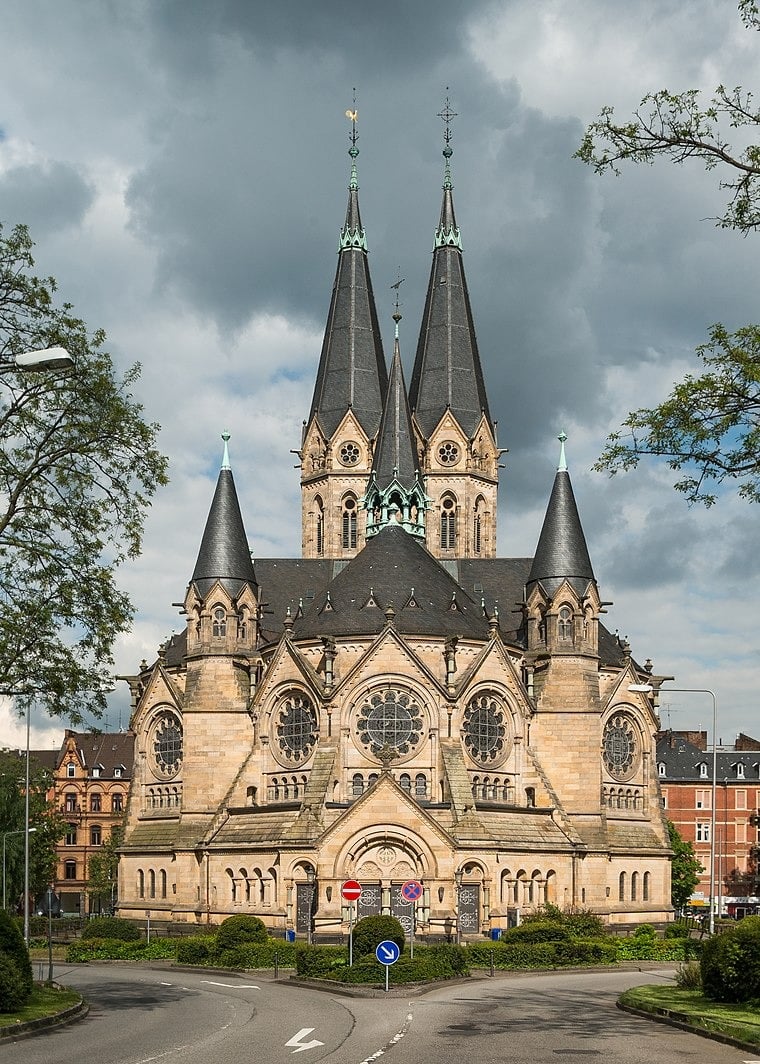
Beyond its role as a place of worship, the Ringkirche has become a vital cultural venue in Wiesbaden, regularly hosting concerts and other events. Its exceptional acoustics and serene ambiance make it a popular choice for performances, including those for the prestigious Rheingau Musik Festival. The Ringkirche’s dual role as both a sacred space and a cultural hub underscores its significance in the community, offering a unique blend of spiritual and artistic experiences.
Conclusion
The Ringkirche stands as a remarkable example of Romanesque Revival architecture and a beacon of Protestant heritage in Germany. Designed according to the innovative Wiesbadener Programm, this historic church has not only provided a place of worship for over a century but also served as a cultural and architectural landmark in Wiesbaden. Through careful preservation and restoration, the Ringkirche continues to inspire and captivate, ensuring that its legacy endures for future generations to appreciate.
